Cartoons
 Most likely this interest stems from the well known (and well loved) Chuck Jones cartoon, Duck Amuck, where it becomes very clear as the cartoon progresses (spoilers for people who haven’t seen a cartoon from 1953) that Daffy is being tortured by the artist illustrating his cartoon. The antagonistic relationship continues until the very end, where it is finally revealed that the cartoonist is none other than… (spoilers for the spoilers)… Bugs Bunny himself. (An almost Lost-ian ending, if I ever saw one.)
Most likely this interest stems from the well known (and well loved) Chuck Jones cartoon, Duck Amuck, where it becomes very clear as the cartoon progresses (spoilers for people who haven’t seen a cartoon from 1953) that Daffy is being tortured by the artist illustrating his cartoon. The antagonistic relationship continues until the very end, where it is finally revealed that the cartoonist is none other than… (spoilers for the spoilers)… Bugs Bunny himself. (An almost Lost-ian ending, if I ever saw one.)
This cartoon was so unlike anything else I had seen as a child that I couldn’t believe it, and I tried to imagine some huge force outside of me that was dictating the world in which I lived, changing it on me randomly. (As a child raised by what you could ostensibly call atheist parents, I had no idea that most people were living in a world where this was true for them.) And while Chuck Jones might have introduced me to this world, when I sat down to study the animated oeuvre every Saturday, I started to realize that there were other guys who tackled similar subjects, but in other ways.
 Bob Clampett‘s Porky In Wackyland is a tour de force of animated spectacle, with plenty of moments where the characters are just crazy enough to address the audience (a schtick he would deploy as needed in many of his cartoons). Tex Avery was also very good at throwing in gags that revealed the cartoon was being played in a theater where characters from the audience would stand up to offer advice or help. Avery loved to break other aspects of the fourth wall whenever he could, and used these gags as much as any other. As an avid cartoon fan, there were no other shows that did anything like this, and part of the genius of the Warner Bros. animated world was that, unlike Disney or other production companies, there was a manic insanity that was shared by the creators and the audience that you did not get from, say, a Pluto cartoon. (As cute and inoffensive as they might have been.)
Bob Clampett‘s Porky In Wackyland is a tour de force of animated spectacle, with plenty of moments where the characters are just crazy enough to address the audience (a schtick he would deploy as needed in many of his cartoons). Tex Avery was also very good at throwing in gags that revealed the cartoon was being played in a theater where characters from the audience would stand up to offer advice or help. Avery loved to break other aspects of the fourth wall whenever he could, and used these gags as much as any other. As an avid cartoon fan, there were no other shows that did anything like this, and part of the genius of the Warner Bros. animated world was that, unlike Disney or other production companies, there was a manic insanity that was shared by the creators and the audience that you did not get from, say, a Pluto cartoon. (As cute and inoffensive as they might have been.)
Over the years I have come to realize that the golden era of Looney Tunes & Merrie Melodies were head and shoulder’s above the competition, and Happy Harmonies, Color Rhapsodies and even Disney’s own Silly Symphony’s could compete with the overall form of the Warner Bros. work. The insanity and the brilliance of their shorts so completely synthesized “cartoon” as a visual format, and their sense of satire and caricature was leaps and bounds above the others. And I largely point to their sense of metatext – of being able to jarringly draw attention to the artifice of the work at hand – that made them far superior. They made jokes with tongue planted and cemented into cheek, and they felt that their own medium not only set them apart, but could be exploited to take audiences into places that other animation studios just couldn’t be bothered to visit.
Comics
It isn’t that I believed a child of the ’80’s could have been the first person to consider the meta-textual qualities of the media around him, and certainly I would have been a fool to consider that this kind of interplay didn’t exist in other mediums, either. But I was shocked when I would mention that it was these moments that I longed for, it was the instant Yosemite Sam turned to me and made a comment that took us both out of the story for a second, that I thought were the funniest moments. I didn’t have a name for it then, and most of my friends and family seemed to thing those scenes were usually boring. (This is like when you meet people who don’t like Holodeck episodes of Star Trek: TNG, or who found the mythology episodes of X-Files to be boring.)
The underlying idea that the artist and the audience could wink at each other and share a joke or a moment between only the two of them was very clearly a powerful tool, considering how much it affected me as a kid. Seeing the edges and peering through the reality that seeped through was always my favorite part of anything I saw around me, and it began to be the way in which I would look at TV and film, too. But I also noticed how it did not seem to have the same kind of effect of other. When most people were confronted with a meta-joke, they frown and shake their head. It just isn’t for them, no matter how funny the joke might be.
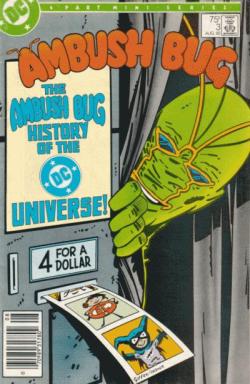 When I discovered comics as a teen, I was immediately attracted to the “funnier” and more comedy-inflected writing styles that was big business in the late ’80’s. DC was having a field day with style, largely influenced by Keith Giffen and his series, Ambush Bug. A lead character that is aware he is in the DC Universe, and plays with dead (or forgotten) bits of continuity that blew my mind as a 13 years old kid, (who, at the time, hadn’t been lucky enough to find Steve Gerber‘s work yet, who Giffen seems influenced by). Again, I seemed to be in the minority, but I would scan the racks at comics stores, looking for something that scratched that itch at a time when most comics had gotten very dark and “serious.” This led me to finding Giffen’s run on Justice League, which is not only one of the funniest comics produced in the late ’80’s / early ’90’s, but to this day stands as a source for much of my sense of humor, if not references and jokes that no one else around me seems to get.
When I discovered comics as a teen, I was immediately attracted to the “funnier” and more comedy-inflected writing styles that was big business in the late ’80’s. DC was having a field day with style, largely influenced by Keith Giffen and his series, Ambush Bug. A lead character that is aware he is in the DC Universe, and plays with dead (or forgotten) bits of continuity that blew my mind as a 13 years old kid, (who, at the time, hadn’t been lucky enough to find Steve Gerber‘s work yet, who Giffen seems influenced by). Again, I seemed to be in the minority, but I would scan the racks at comics stores, looking for something that scratched that itch at a time when most comics had gotten very dark and “serious.” This led me to finding Giffen’s run on Justice League, which is not only one of the funniest comics produced in the late ’80’s / early ’90’s, but to this day stands as a source for much of my sense of humor, if not references and jokes that no one else around me seems to get.
 And then, there was The Blasters. Where do you even begin with trying to tell that backstory? In the late ’80’s, Giffen had been given a number of books to work on as one of DC’s rising stars, and with his Justice League book a hit, he was allowed to expand his influence to a number of titles. This also led to him getting to write 1989’s annual all-company cross-over Invasion! Giffen used this end product as a way to cause his various Sci-Fi / outer space story lines hinted at in Omega Men, Justice League International, and Legion of Super-Heroes to converge in this company-wide event. DC’s goal (like it is for any event like this) was to launch some new titles, shake up some old titles, clean house elsewhere in the universe, and move some of the action that is usually contained entirely on Earth into outer space, thus opening up the DC Universe so that the word “universe” was actually on point these days. This was Giffen’s attempt to not only ape Marvel’s Cosmic titles that were doing very well over there (with stuff like Guardians of The Galaxy and Silver Surfer selling like gangbusters), but to try and do a modern version of Kirby’s Fourth World books from the ’70’s.
And then, there was The Blasters. Where do you even begin with trying to tell that backstory? In the late ’80’s, Giffen had been given a number of books to work on as one of DC’s rising stars, and with his Justice League book a hit, he was allowed to expand his influence to a number of titles. This also led to him getting to write 1989’s annual all-company cross-over Invasion! Giffen used this end product as a way to cause his various Sci-Fi / outer space story lines hinted at in Omega Men, Justice League International, and Legion of Super-Heroes to converge in this company-wide event. DC’s goal (like it is for any event like this) was to launch some new titles, shake up some old titles, clean house elsewhere in the universe, and move some of the action that is usually contained entirely on Earth into outer space, thus opening up the DC Universe so that the word “universe” was actually on point these days. This was Giffen’s attempt to not only ape Marvel’s Cosmic titles that were doing very well over there (with stuff like Guardians of The Galaxy and Silver Surfer selling like gangbusters), but to try and do a modern version of Kirby’s Fourth World books from the ’70’s.
It also helped that in the old Justice League comics, there was a tendency to have to fight off an alien menace every other issue, and the one thing that “dark” and “modern” comics of the late ’80’s had been lacking was a good alien invasion. And with any good war story, you needed a band of mercenaries. To this end, Giffen organized a group of new and old characters to work as the catalyst for the Invasion! storyline. This group was loosely known as The Blasters for an actually terrifying reason (their powers all emerged when aliens lined them up and fired upon them, scaring the team senseless and causing their metagenes to activate).
In the wake of the Invasion! series, DC took chances on several new titles, one of which was a one-shot featuring this new team, to see if it might be a book they could add to their publishing roster. Being a Giffen property not only meant that the book had to be funny, but helmed by someone who got Giffen’s take on comics. He not only picked the team to write and draw it (Peter David and James Fry), but set the tone for the book with the comedy and meta-text that followed his particular interests. It also so happened that Peter and James like to produce the same kind of stuff, too.
Since almost none of you have even heard of this title, I’ll spoil everything now and save you the trouble of Lycos-ing or tracking down this story: there has been only one Blasters comic book published since 1989, a special release in the Spring of that year (that was panned by critics and very quickly forgotten). The story, typical of Peter David’s writing, is a mish-mash of Sci-Fi references (largely from Hitchhiker’s Guide To The Galaxy… yes, vogons appear in this comic), and meta-textual references and gags where the captions for the book are destroyed and flown through by various space ships. (The lead character, Snapper Carr – have fun with that particular comics k-hole – finds out what to do next in the story by glancing at the panels that are ahead of him.) If I haven’t done a good enough job of describing what The Blasters is like to read, just imagine something that was written for nerds, and narrow the focus so incredibly that within their own ranks, only a small sub-set will find it up their alley. No matter how much I raved, and no matter who I loaned that book to, it always came back, largely unread, with a comment like, “I tried, but it just isn’t my thing.”
Film
I have often wondered why I heard this phrase so often when I tried to get at my interest in this subject. “It just isn’t my thing.” It seemed like such a ripe area for reflection and narrative complexity to my young mind, and yet it was the element in every story I read that others seemed to skip over. The thing I learned from Warner Bros. cartoons growing up is that, unlike most schlock that is played straight and is absolutely saccharine with predicability and well-worn stories – ahem, Disney, coff coff – you can often get bigger reactions from something if it is unlike everything else around it. Even at a young age, television brought home the idea that there are basically two kinds of stories, and they are each the reverse side of the other. (Summarizing Jorge Borges, one is “A stranger came to town,” and the other, “Someone went off on a long journey.”) Repetition absolutely bred familiarity with me, and the welcome intrusion of characters and references that pointed to the artificiality of this repetition became the attractive element that I looked for in art and culture.
 Let me pause my own story a brief moment to say a few words about Spaceballs, a film that spent many years on my list of favorite movies, and my very favorite by Mel Brooks (until I became more familiar with his other work as a teen and twenty-something years later). While all of his films use metatext as a platform to layer joke after joke (see, for instance, the last third of Blazing Saddles), Spaceballs was very close to home for me. I loved sci-fi (and Star Wars, of course), I loved comedy, and they had packaged both with a huge swath of self-awareness that I had not seen in a film before. This movie had my sense of humor written all over it, so much so that there is a sort of chicken-or-the-egg quality regarding which came first. If you had to distill an aspect of that film that moved me, pulled me aside and said, “kid, this is for you,” then I would have to point to Rick Moranis turning to the camera asking if, “Everybody got that?” It went so directly to the core of my being as a kid that it still works on me, even as an adult, and I am sure I quote this movie accidentally without realizing I am. It is possible, if one were so inclined, to make a Bowfinger-style recreation of Spaceballs without my knowledge, provided you followed me around long enough and waited for the appropriate scenes to play out.
Let me pause my own story a brief moment to say a few words about Spaceballs, a film that spent many years on my list of favorite movies, and my very favorite by Mel Brooks (until I became more familiar with his other work as a teen and twenty-something years later). While all of his films use metatext as a platform to layer joke after joke (see, for instance, the last third of Blazing Saddles), Spaceballs was very close to home for me. I loved sci-fi (and Star Wars, of course), I loved comedy, and they had packaged both with a huge swath of self-awareness that I had not seen in a film before. This movie had my sense of humor written all over it, so much so that there is a sort of chicken-or-the-egg quality regarding which came first. If you had to distill an aspect of that film that moved me, pulled me aside and said, “kid, this is for you,” then I would have to point to Rick Moranis turning to the camera asking if, “Everybody got that?” It went so directly to the core of my being as a kid that it still works on me, even as an adult, and I am sure I quote this movie accidentally without realizing I am. It is possible, if one were so inclined, to make a Bowfinger-style recreation of Spaceballs without my knowledge, provided you followed me around long enough and waited for the appropriate scenes to play out.
As I got older and discovered a love of writing, my stories became full of characters that were my own in-narrative proxys. (A Grant Morrison kind of move before I even knew who he was. In fact, reading The Invisibles was painful for me only because periodically I would yell out, “That was my idea!” a problem that would recur when I started watching Lost.) As my big literary influence in those days were comics, and to another degree the DC Heroes Roleplaying Game that I’d gotten for Christmas one year, most of my early writing is littered with a thinly-veiled versions of myself in some sort of elaborate conceit or costume that made me into a superhero. I am fortunate enough that most of this material is still in either a hand-written form, or on typing paper (predating my first computer), and therefore I can’t share these stories with you as easily. (You’re welcome.) Suffice it to say, my Hitchcockian cameos in my own text began very early, and has continued ever since.
‘Zines
 My first foray into my own fiction began with a story I wrote in High School, and was serialized in my zine A.C.R.O.N.Y.M., which was made and distributed between 1994 and 1995. In issue #2, the first installment of naaaaaahhhhghahahhk!!!!!!!! (oR, tHE rEALLY wEIRD sTORY tHAT i cAN’T rEMEMBER wHAT tHE tITLE iS) sees print, and I wish I could say nicer things about it considering I know the author fairly well. I made the decision to typeset the entire thing in what I called the “fIREHOSE” format, which made the story largely unreadable to most people save for myself and those with the highest constitutions when it comes to textual form.
My first foray into my own fiction began with a story I wrote in High School, and was serialized in my zine A.C.R.O.N.Y.M., which was made and distributed between 1994 and 1995. In issue #2, the first installment of naaaaaahhhhghahahhk!!!!!!!! (oR, tHE rEALLY wEIRD sTORY tHAT i cAN’T rEMEMBER wHAT tHE tITLE iS) sees print, and I wish I could say nicer things about it considering I know the author fairly well. I made the decision to typeset the entire thing in what I called the “fIREHOSE” format, which made the story largely unreadable to most people save for myself and those with the highest constitutions when it comes to textual form.
The idea itself was fairly bland: I had written the story my neighbors appeared in, but they find out, get worried, and I have to stop them from learning more, and eventually give up and crumple the story, destroying their universe. Corny, yes, but it illustrates where my mind was in High School. Super heroes appear in this story, and I fight them, even. Most of the writing groups I would attend in the early days had people hashing out their fantasy novels, creating cryptic and impenetrable poetry, or just wanted to turn their journals into creative prose so we could all experience their pain. I was looking to do something that was sort of in-between all of these things, and would read stories like naaaaaahhhhghahahhk!!!!!!!! to puzzled audiences who didn’t know what to think.
 When I settled into Eugene properly after High School, and started to immerse myself in the ’90s culture that surrounded us, I became the center of my own writing again. Between 1996 and 2005, I wrote a ‘zine called I’d Buy That For A Dollar. While this occasionally contained fiction, the bulk of it was an outlet for my incredibly solipsistic and emo ponderings, where I made my best efforts to made sense of life as a lonely young man. While I will cop to have written it all – even the awful bits – with hindsight it is not only unseemly at times, but as my friend Cheryl once said to me, “this is a little too revealing.”
When I settled into Eugene properly after High School, and started to immerse myself in the ’90s culture that surrounded us, I became the center of my own writing again. Between 1996 and 2005, I wrote a ‘zine called I’d Buy That For A Dollar. While this occasionally contained fiction, the bulk of it was an outlet for my incredibly solipsistic and emo ponderings, where I made my best efforts to made sense of life as a lonely young man. While I will cop to have written it all – even the awful bits – with hindsight it is not only unseemly at times, but as my friend Cheryl once said to me, “this is a little too revealing.”
I don’t regret it, because it was so much a part of my psyche at the time that I needed to get that out of my head, even if it wasn’t exactly helping. When I read it back, I don’t know if I feel the same way about the events this person was writing about, even though I am sure we are the same person. Of course, it is easy to say that when almost 20 years separates the earliest issues from now, but I think I let my own misery drive my creative impulses a little too much then, and with hindsight, I wish I had let other motivations steer me toward other material.
 But even this reflectiveness was being shaped and molded by metatext. My roommate at the time, a tall linguist we called Sierra, introduced me to Flann O’Brien, an author who plays with the boundaries between literature and reality for fun and sport, in both his novels and his newspaper columns (which blur the line between journalism and fiction). Discovering Fight Club and Charlie Kaufman movies at this time did me no end of good when it came to plumbing the depths of this well. The Princess Bride was an obsession that started harmlessly enough when I saw it, but led to multiple re-readings and viewings where the genius therein was full revealed. And, let’s no forget re-reading Endgame over and over, which eventually led to a nice and comfortable interest in Rosencrantz & Guildenstern Are Dead, a film that not only rewards with multiple viewings, but might be the funniest thing that has ever been written.
But even this reflectiveness was being shaped and molded by metatext. My roommate at the time, a tall linguist we called Sierra, introduced me to Flann O’Brien, an author who plays with the boundaries between literature and reality for fun and sport, in both his novels and his newspaper columns (which blur the line between journalism and fiction). Discovering Fight Club and Charlie Kaufman movies at this time did me no end of good when it came to plumbing the depths of this well. The Princess Bride was an obsession that started harmlessly enough when I saw it, but led to multiple re-readings and viewings where the genius therein was full revealed. And, let’s no forget re-reading Endgame over and over, which eventually led to a nice and comfortable interest in Rosencrantz & Guildenstern Are Dead, a film that not only rewards with multiple viewings, but might be the funniest thing that has ever been written.
While I’d Buy That For A Dollar was far from metatext in intent, it became an ongoing story about my own life, and one that I recognized less and less as the years went on and I started changing and evolving, personally. Having been steeped in this world of reality and fiction blurring, my reality now read like fiction to me, not because the events hadn’t happened, but the lens through which I was seeing those same events was filtering for something entirely different. Already, even in offering context for this interest of mine, I have to relate to my own life and past through the narrative text I wrote, a breadcrumb trail that offers clues as to what was happening when, and where I have been, but in a form that seemed strange and unfamiliar to the adult I had become. Around 2005-ish this kind of personal writing migrated entirely to this blog – the one you’re reading now. I had been a character in this printed story that now seemed foreign and made up, and if my own life was going to sound that way anyway, then I should probably become comfortable with just making things up from the start in the first place.
 It isn’t that my life changed or that things shifted dramatically in 2005. I was going to college, yes, and outside of radio and writing fiction, my only other interest at the time was girls. But something more subtle was going on that only made sense to me years later. The “me” that I had been writing about for my whole life was gone. I was an adult, interested in different things, talking about life in a different way, and looking for something that I could get excited about that wasn’t informed by my childhood. In many ways, I had become a Sci-Fi trope, where I was living in the body of someone else, a body that carried memories of someone that seemed familiar to me, but also seemed unrelated to the life that I was living now. The 30 year old I found myself being then was not only confused by the life I had led before, but it felt like a life I would have lived differently, had I known how most of it would turn out.
It isn’t that my life changed or that things shifted dramatically in 2005. I was going to college, yes, and outside of radio and writing fiction, my only other interest at the time was girls. But something more subtle was going on that only made sense to me years later. The “me” that I had been writing about for my whole life was gone. I was an adult, interested in different things, talking about life in a different way, and looking for something that I could get excited about that wasn’t informed by my childhood. In many ways, I had become a Sci-Fi trope, where I was living in the body of someone else, a body that carried memories of someone that seemed familiar to me, but also seemed unrelated to the life that I was living now. The 30 year old I found myself being then was not only confused by the life I had led before, but it felt like a life I would have lived differently, had I known how most of it would turn out.
It was around 2005 that I started writing fiction again, much more of it than I had before. Short stories, yes, and very inspired by Borges and Calvino and Brautigan and Flann O’Brien, and some other material I’d absorbed through being on a college campus and having access to the larger world of ideas. And yet, in nearly all of these I insisted in making myself a character in the narrative, a gimmick that my influences were all very good at, true. But for me it seemed motivated by a different impulse. Since I had written the truth and it felt like fiction, inserting myself into fiction felt like a new way and defining truth for myself. Why did I see this other life as someone else’s, when it was clearly my own? Perhaps, if I wrote about another version of it enough, I could crack some of these puzzles that no amount of booze or girls or writing about it seemed to allow me to do.
 Most of my work since 2005 has been centered around amplifying the idea that I could live comfortably within the stories that I write. And, to be fair, these fictions have been quite enjoyable to try on and waltz around within. I made a 2008 collection of these stories, Naked Trees Point To The North Star, and to this day, it remains the best collection of my written work that I have been able to get in print, and has re-defined who I was, both to myself and to the people who read it. The idea had been gestating since those earliest days at PSU: DIY publications and ‘zines are the perfect form to create experimental pieces of prose, and I envisioned that Naked Trees would look and feel like a ‘zine, would have a personal / journal-like quality at times, but the entirety of the package was a work of fiction, written and made by a version of myself that is almost, but not at all remotely, like the me that had been writing previously.
Most of my work since 2005 has been centered around amplifying the idea that I could live comfortably within the stories that I write. And, to be fair, these fictions have been quite enjoyable to try on and waltz around within. I made a 2008 collection of these stories, Naked Trees Point To The North Star, and to this day, it remains the best collection of my written work that I have been able to get in print, and has re-defined who I was, both to myself and to the people who read it. The idea had been gestating since those earliest days at PSU: DIY publications and ‘zines are the perfect form to create experimental pieces of prose, and I envisioned that Naked Trees would look and feel like a ‘zine, would have a personal / journal-like quality at times, but the entirety of the package was a work of fiction, written and made by a version of myself that is almost, but not at all remotely, like the me that had been writing previously.
The reaction to this was, of course, mixed. Meta is just not for everyone, and while I felt that these stories really got at the heart of struggles that I was going through, I had a hard time talking about the work with anyone else, without resorting to the worst quality in every writer, making the statement, “So, did you ‘get it’?” While it remains the best written work I have produced in any format to date, and I have come to terms with how, in spite of my best efforts, it is more journalistic than fictional, in that it marked a serious shift in my own view of the universe. It was clear that once I imbued my text with any amount of reality from my world, the reality itself seemed further and further from the truth. After publishing that collection all I had left of my former live was this written collection and half-trusted memories to guide me. Something was about to give.
Reality

It isn’t that I decided to make my life reflect these vague and perplexing Sci-Fi and Fantasy tropes to add some spice or flavor to my own experiences. In observing my own interactions with the world – and the interactions of others – it is clear to me that you cannot capture the complexity of this existence, and the strangeness of the mundane, in anything but fantastic language and conceptual thinking. Is it possible to illustrate these kinds of experiences if you haven’t been through them yourself? You’re sharing some wine with some friends, and you’re quickly gobbling every snack you can, because of the night ahead of you.
Gathering everything you can imagine needing, you trundle en mass, passing fellow travelers and enemies, until you arrive at the bar. There is music and magic and libido and peacocking and every manner of horror and excitement on display, charging you, filling you with magic until you are casting conversational spells in every direction. You are filled with an experience you can barely explain, as your friends are performing and watching and drinking and fucking and exploring all manner of joy and pain in one dramatic and perplexing night. And, exhausted, wasted, with a kiss on your cheek and a song in your heart, you perform your last few tricks, produce a cigarette from somewhere, and zig zag through the alleys, to find yourself at home, the next day, perplexed and confused, but itching to do it all over again.
Is that not some sort of fantasy, full of the kind of strangeness and confusion that the best fiction fills us with as we turn pages? At what point does our own life contain a kind of importance that we choose to add it to the cannon, so we can romp through uncharted waters side-by-side with Odysseus? Are we all content to wallow in the banality of brushing our teeth and making lunch?
 Three things happened in 2010 that had a huge effect on me. First, I finished college, a banality that I had put off for too long, and was only causing me to spin my tires and was getting in the way of my next phase in life. I moved in with a friend of mine (second thing), and when all of that was said and done, I had an experience that is difficult to explain, which I attempted to document in 2013’s acronyminc.blogpress.new.
Three things happened in 2010 that had a huge effect on me. First, I finished college, a banality that I had put off for too long, and was only causing me to spin my tires and was getting in the way of my next phase in life. I moved in with a friend of mine (second thing), and when all of that was said and done, I had an experience that is difficult to explain, which I attempted to document in 2013’s acronyminc.blogpress.new.
Essentially, I lost 10 years of my life, and in processing that event, realized that not only was I living in a future that made little sense to me, but that the memories I did have were absolutely those of someone else I no longer connected with. It wasn’t exactly a sudden experience, and it didn’t come on over-night. But the span of time between the Millennium turning over and my own academic leveling-up had become dreamlike, and waking up on the other side of it created a world for me that was now actually full of technology and behavior that was ten years ahead of who I felt I was. Without intending to, the world around me began to fully resemble something straight out of my own fiction, and now I was the character who was just enough aware to question what kind of Duck Amok world of which I was now a part.
The best part about living within your own fiction is that, on the whole, things tend to work out okay. In spite of being a temporal mess, covered in magic and confusion, I managed to meet someone who has become so central to my own life, and we have found a place we can call our own. My efforts to capture this reality I’ve been inhabiting and communicate it to others has become a steady routine, a rhythm that I can count on to keep me focused and aware of what may lie ahead. And you get to enjoy these efforts, too, which is no small thing, I imagine. And usually, the hardships we face are handled together, so that neither of us has to take on too much of the burden this world presents us with.
But this doesn’t ease the strangeness we encounter every day. We look at TV, and it barely resembles the things we remember knowing. These computers in our pockets are straight out of a novel I read as a kid, and the social changes our world has gone through not only seem unreal, but were absolutely unobtainable when I was a child. (Open homosexuality? Gluten free restaurants? Reality TV Politics? Legal weed?)
For better or for worse, this world reads as more fictional than anything I can have come up with, at any time in my life, and for that alone I will continue to define the borders of this made-up universe, flesh out the parts that I can see and understand, and hope that when I hand it over to you, trembling, nervous, that the things I see are like what John Nada’s sunglasses reveal, that, hopefully, you can look at it, take it for what it is, and remember that this can’t be any crazier than the religious world most everyone else lives in, too.
The only difference is: I know I made this one up, and I’m absolutely willing to admit it.






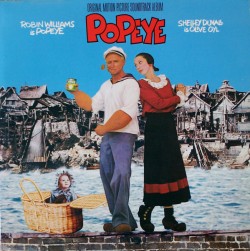

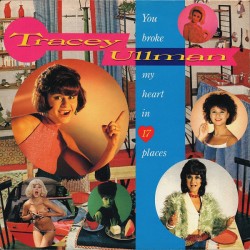
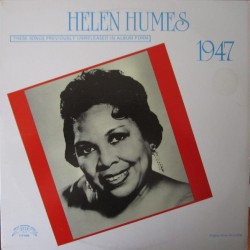




















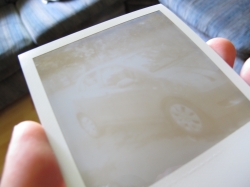
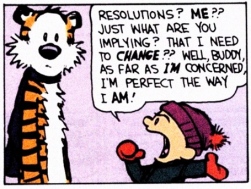



 It’s pretty hard to sit in a room with a lit Christmas Tree, a fire on the TV, and vintage holiday songs playing in the background soothingly, and while all of that is going on, frown and say, “man, fuck this holiday.” Because, and this is something I can’t believe I’m saying as an adult male, this time of year can have a soothing effect on you if you let it.
It’s pretty hard to sit in a room with a lit Christmas Tree, a fire on the TV, and vintage holiday songs playing in the background soothingly, and while all of that is going on, frown and say, “man, fuck this holiday.” Because, and this is something I can’t believe I’m saying as an adult male, this time of year can have a soothing effect on you if you let it.



 onvey how
onvey how

 when she found them, and while we don’t know the exact
when she found them, and while we don’t know the exact





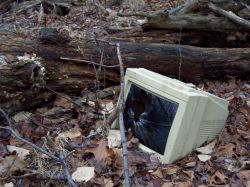

 Happy Holidays From WTBC Radio
Happy Holidays From WTBC Radio





 Our Wreath.
Our Wreath.












 To get people’s spirits up, the Druids would have huge bonfires in the woods. The villagers would then put out all other fires in town, and come to dressed in animal skins and masks (so the ghosts that were wandering around would think the villagers were ghosts too). In the fire they burned crops (assumedly to beat the dead-walking-amongst-the-living to the punch of ruining them). Animal sacrifices & attempted fortune telling rounded out this fun-filled evening, and at the end of the night everyone would return to their homes, relight their fires using a piece of the sacred Druidic fire they attended, and spend the rest of the winter cowering in fear and hunger until the Sun mysteriously came back many months later. (This would be emulated years later by every teenager suffering from a medium-to-large breakup in the years to follow.)
To get people’s spirits up, the Druids would have huge bonfires in the woods. The villagers would then put out all other fires in town, and come to dressed in animal skins and masks (so the ghosts that were wandering around would think the villagers were ghosts too). In the fire they burned crops (assumedly to beat the dead-walking-amongst-the-living to the punch of ruining them). Animal sacrifices & attempted fortune telling rounded out this fun-filled evening, and at the end of the night everyone would return to their homes, relight their fires using a piece of the sacred Druidic fire they attended, and spend the rest of the winter cowering in fear and hunger until the Sun mysteriously came back many months later. (This would be emulated years later by every teenager suffering from a medium-to-large breakup in the years to follow.)






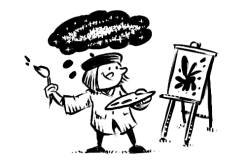
 Now I Have To Do The Hard Thing
Now I Have To Do The Hard Thing












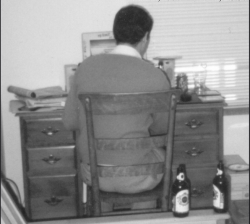 The real bummer of it all is that, most of the time, dreams don’t come true.
The real bummer of it all is that, most of the time, dreams don’t come true.












